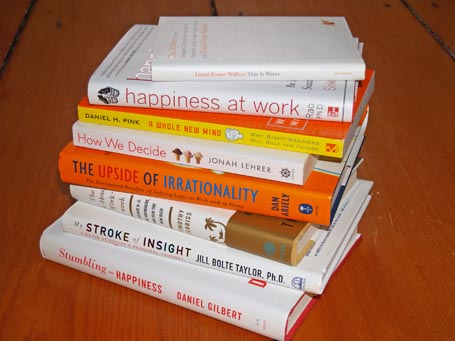
Entries in behavior economics (1)
The secret behind continuing ed. bliss
 I remember an architectural coworker teasing me about my needing time to “take calligraphy classes or whatever”. I wasn’t taking a calligraphy class, and he knew it, but what struck me as so spot-on and funny about his dismissal of my extra-curricular pursuits is that I would have loved to have taken a calligraphy class then or now.
I remember an architectural coworker teasing me about my needing time to “take calligraphy classes or whatever”. I wasn’t taking a calligraphy class, and he knew it, but what struck me as so spot-on and funny about his dismissal of my extra-curricular pursuits is that I would have loved to have taken a calligraphy class then or now.
I’ve often pondered what it is about my “non-essential” creative endeavors that captivate me so. I look forward to them the way many anticipate a vacation on the beach or poolside. I find myself completely blissed out in a pin-hole photography class, a creative non-fiction workshop, or a plant-identification field-visit primer. What’s it all about?
mystery-of-being-human books
For a while now, I’ve been turning to books for the answer. There’s been a series of what I’ll call mystery-of-being-human books taking up space on my nightstand over the years, starting first with Stumbling on Happiness by Daniel Gilbert. Then, moving on to My Stroke of Insight by Jill Bolte Taylor, Ph.D., The 4-Hour Workweek by Timothy Ferriss, How We Decide by Jonah Lehrer, This Is Water by David Foster Wallace, The Upside of Irrationality by Dan Ariely, A Whole New Mind by Daniel H. Pink, and most recently Happiness at Work by Srikumar S. Rao, Ph.D.
Of course, I read other books in between these, but it wasn’t until finishing Happiness at Work a couple of weeks ago that I realized how much overlap there had been in the books cited above, to which I had gravitated. For me, they all seem to support an aspect of some inescapable truths; we all long for sublime connections to people, experiences and/or entities outside ourselves, and it is within our power to realize those connections. David Brooks describes such a drive, identified by current research in neuroscience, psychology, sociology and behavior economics, as “limerence”. Brooks explains in The New York Times that “… the unconscious mind hungers for those moments of transcendence when the skull line falls away and we are lost in love for another, the challenge of a task or the love of God”.
choosing how to perceive
Jill Bolte Taylor, a neuroanatomist, had a transcendent experience in the midst of a stroke, which struck the left hemisphere of her brain. In My Stroke of Insight she writes,














